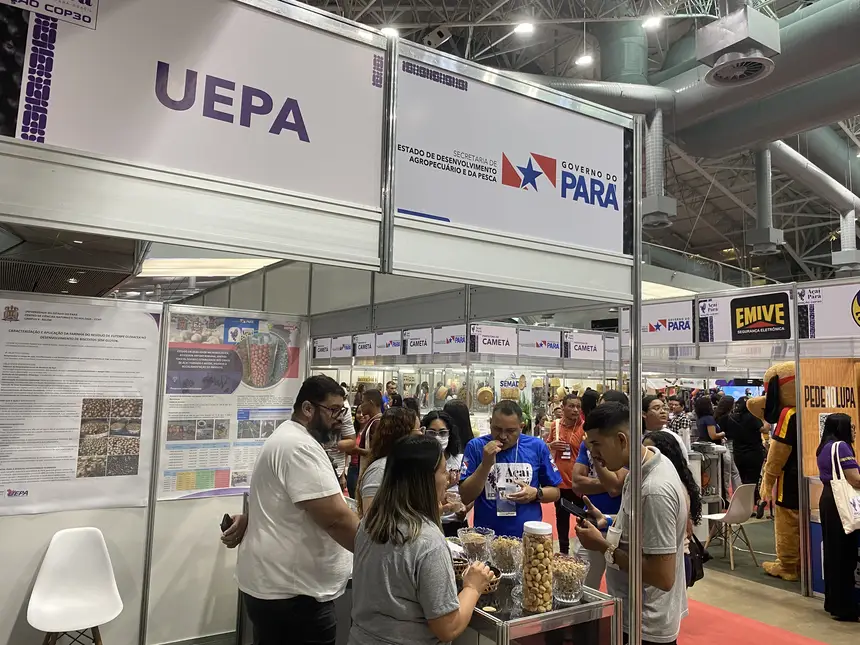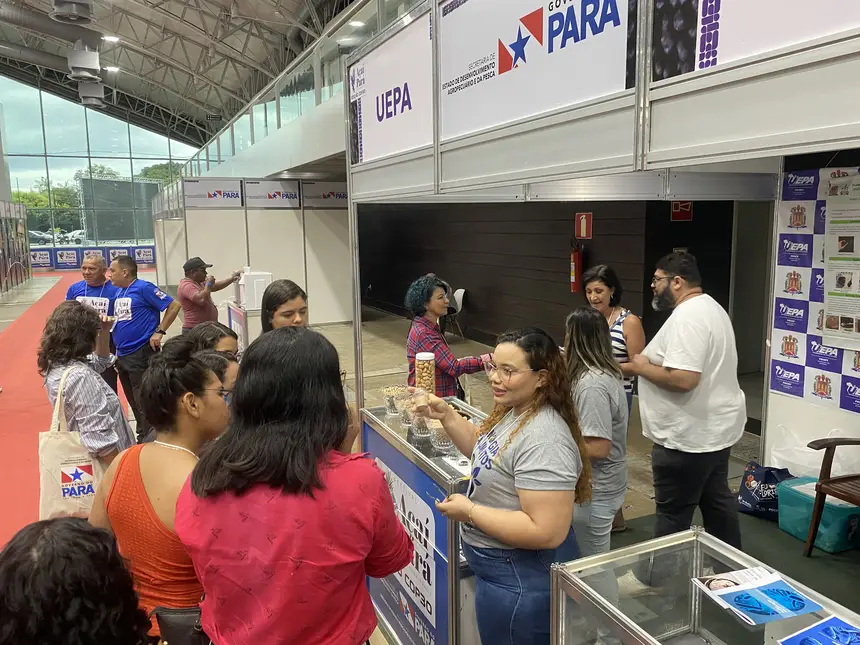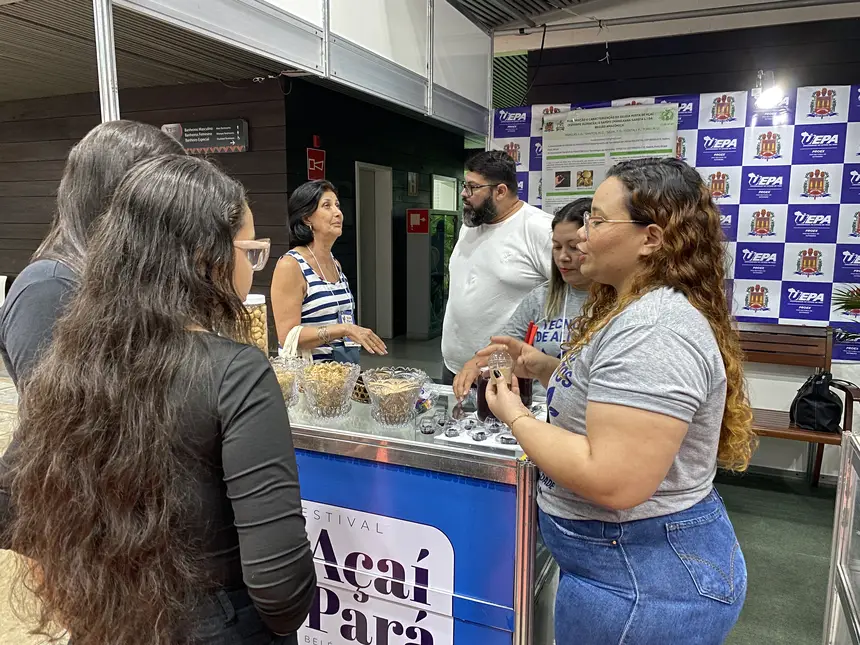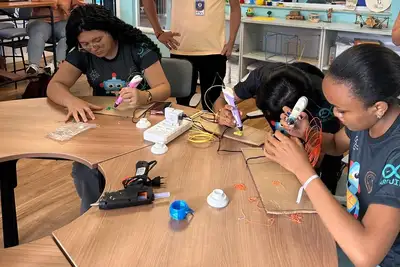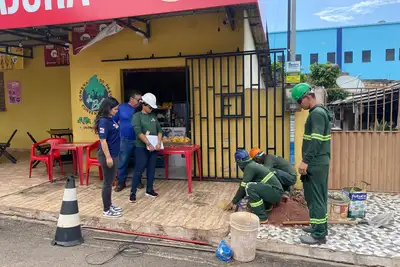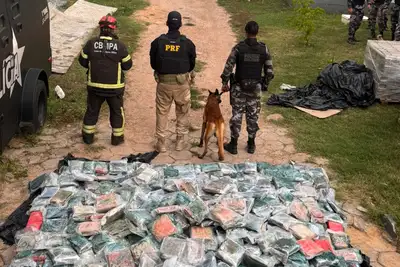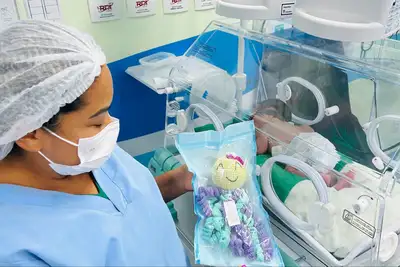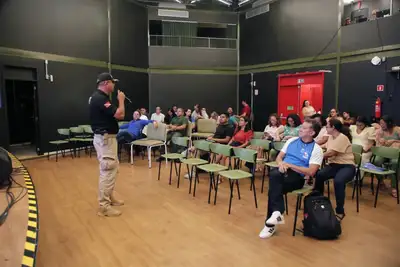Uepa participates in the Açaí Pará Festival
The university's booth showcases research developed at the institution
The State University of Pará (Uepa) is present at the Açaí Pará Festival - COP 30 Edition, which will be held until this Saturday, June 14, at the Hangar Convention Center in Belém. With a diverse program, the event celebrates the fruit that symbolizes Pará's culture and economy, featuring tastings, exhibitions, training sessions, cultural presentations, and technological innovations related to the açaí production chain. The program is an initiative of the State Government, through the Secretary of Agricultural Development and Fisheries (Sedap).
Uepa's participation involves the exhibition of scientific research, presentation of products developed by students and professors, training of açaí beaters, and dissemination of innovative technologies for the sector. According to Professor Diego Aires from the Center for Natural Sciences and Technology (CCNT), the university's presence at the event is a way to strengthen the ties between scientific production and society.
“The public can really expect this approach. We, as a university, should not only look at the technical and scientific aspects of the issue but also bring this knowledge to serve the community, to improve people's lives. I think this is the great objective of science,” says the professor.
One of the highlights is the presentation of the results of a research coordinated by Uepa in partnership with the Federal University of Pará (UFPA) and the Federal Rural University of the Amazon (Ufra), funded by the Amazon Foundation for Support of Studies and Research (Fapespa). The study underpinned the state regulation of the product known as “toasted and ground açaí grain,” popularly known as açaí coffee. Pará is the first Brazilian state to regulate the product, based on a decree issued by the State Agency for Agricultural Defense of Pará (Adepará), based on identity and quality criteria defined by the study.
“We conducted toxicological, microbiological, and physicochemical analyses, in addition to meetings with the competent authorities. These data are being presented at the festival, along with other initiatives developed at the university,” explained Aires.
Uepa also presented innovative products related to açaí, along with the Food Technology course, which featured tastings of new products derived from the fruit.
The mixed açaí jelly and the cookie made with açaí flour are examples brought by students Noele Santos and Ana Elizabeth Oliveira from Uepa's undergraduate course.
The mixed jelly is made with açaí, sapodilla, and sweetened with honey, and the proposal was to produce a more nutritious food without the use of sugar. The cookie is enriched with flour obtained through a process that transforms the açaí seed into flour for food production, a way to utilize the waste that is usually discarded after the production of the popular Pará food.
“We are working on this project to possibly, in the future, partner with a school or the city hall itself, to work with school meals enriched with this flour,” explains Ana Elizabeth.
In addition to being a space to develop partnerships, the products also attract visitors who can taste and give feedback on the products, as Noele explains. “Seeing that people are enjoying the cookies that are being enriched with this flour has been something directed towards our own research, so we can already improve precisely so that new products can have even better characteristics. So the palate ends up bringing us a return of our own results that we are having from sensory analysis with the public, because we can see if this production, if these formulations, this research is viable, since people are tasting and giving us feedback on whether it is good or not, whether it is acceptable to each one's palate.”
Additionally, the University will offer training in good food handling practices aimed at açaí beaters, an action that is part of the event's training program, also promoted by Professor Diego Aires.
The Festival began in the early hours of the 12th with the traditional "avuado" at the Açaí Port in the Jurunas neighborhood, where 300 liters of açaí and 300 kilograms of fish were distributed to the population. The program at the Hangar started today, the 13th, at 2 PM, with free access for the public, who can visit booths, check out cultural presentations, and get to know actions aimed at the sustainable development of açaí in the state up close.


